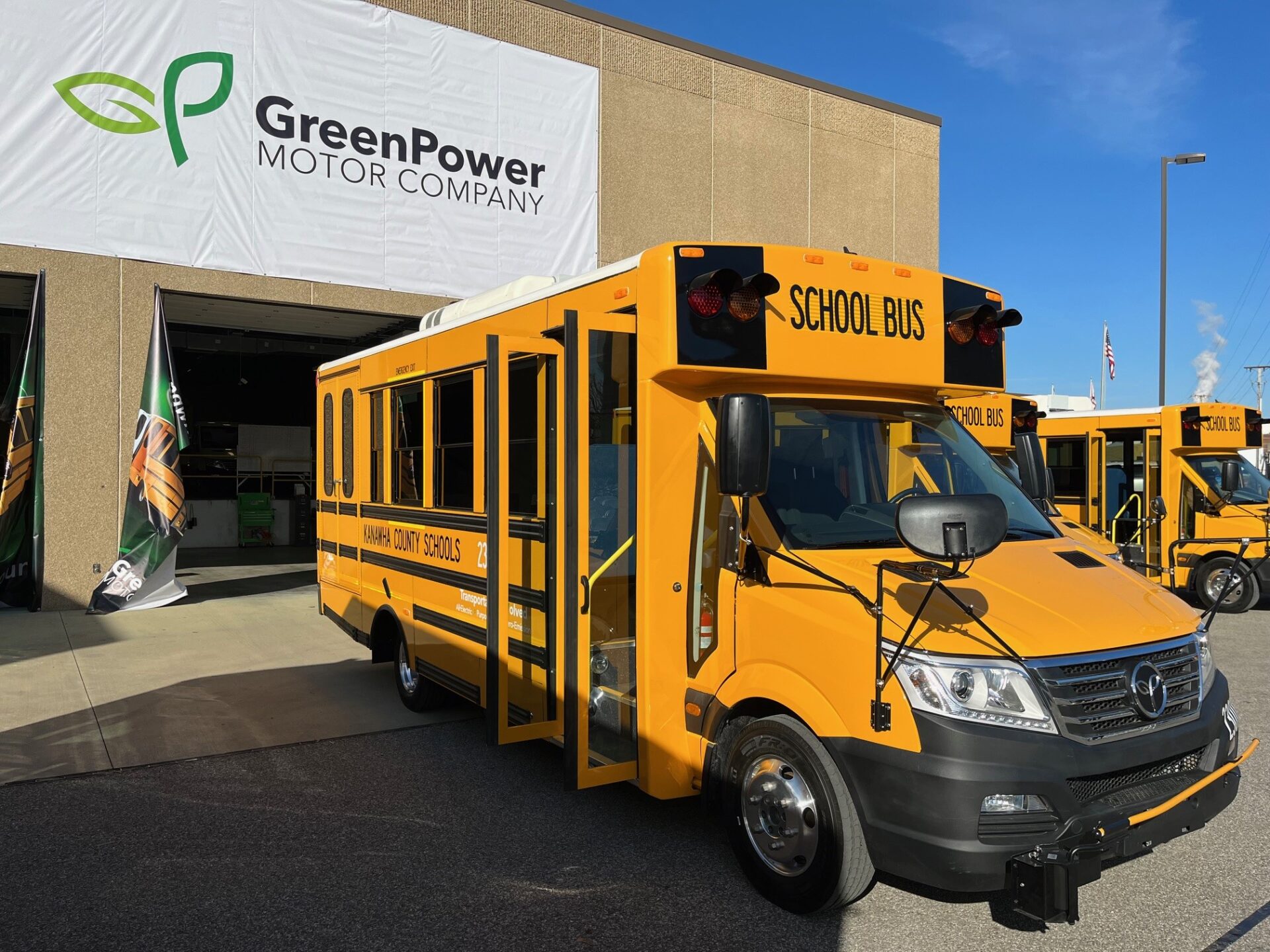A South Charleston electric school bus manufacturer is in limbo with a freeze on federal grants.
GreenPower Motor has received millions of dollars in grants from the U.S. Environmental Protection Agency to build electric buses for school districts nationwide, including some in West Virginia.
Some of those funds are on hold, though, due to a freeze on federal grants and loans implemented by President Donald Trump.
U.S. Sen. Shelley Moore Capito says she supports the grants and wants to see them resume.
“I believe in the product. I believe in the jobs being created in West Virginia,” she said. “And I believe we should be looking at this as a technology that will help our school systems save money but also keep our students safe as they go to and from school.”
Most of the grants were made available through the 2021 Infrastructure Investment and Jobs Act, which Capito supported and former President Joe Biden signed.
AML Projects Also On Hold
Funding for some Abandoned Mine Land projects is also on hold due to the Trump administration’s freeze.
Capito said the actions have affected several projects in the Charleston area, but she expects funding to continue soon.
West Virginia is in line to receive hundreds of millions of dollars in the coming years to clean up mine sites for recreational use or economic development.
Such grants, from the Office of Surface Mining, Reclamation and Enforcement, help put displaced coal mine workers back on the job and remove safety risks and environmental hazards from former mine lands.
Multiple federal judges have blocked the administration’s freeze on federal grants and loans.
